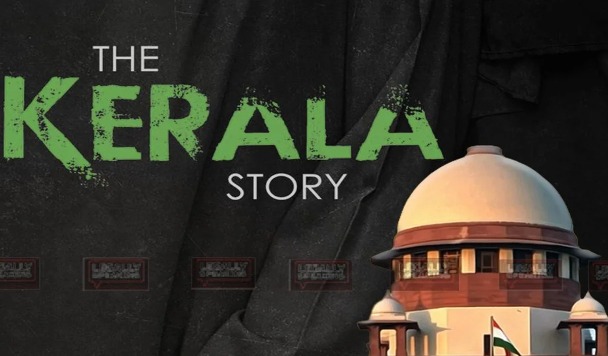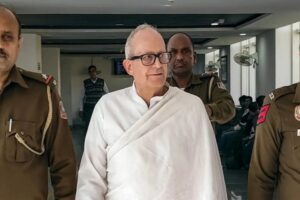
The Supreme Court on Thursday stayed the West Bengal government’s decision to ban the screening of the ‘The Kerala Story’ film in the state.
A bench of Chief Justice of India (CJI) DY Chandrachud, Justices PS Narasimha and JB Pardiwala stayed West Bengal’s ban order and also ordered the state of Tamil Nadu to provide security to theatres.
“West Bengal issued an order on May 8 under Section 6(1) read with Section 4 of the West Bengal Cinemas Regulation Act prohibiting the film’s exhibition throughout the state. Prima facie, we believe that West Bengal’s restriction is untenable based on the preceding material. As a result, the order prohibiting the film is stayed,” the Court ruled.
Regarding Tamil Nadu, the Court took note of the State’s submission that the film’s screening had not been directly or indirectly barred in the state.
“While recording this, we direct that adequate security be provided to each cinema hall and that necessary arrangements be made to ensure the safety of moviegoers. No express or tacit steps shall be taken to prevent screening of the film,” the Court stated.
Importantly, the Court required the filmmakers to include a disclaimer clearly noting that the film is a fictionalized account of events and that there is no actual data to support the figure of 32,000 conversions (of women to Islam). The Court ordered that this be completed no later than on 5 p.m. on May 20.
Concerning the challenge against the Central Board of Film Certification (CBFC) certification, the Court stated that it would be listed after summer vacations since the Court would need to see the film first.
The Supreme Court was hearing two petitions, one of which was a challenge to a May 5 Kerala High Court judgement that declined to stay the film’s release or remove the trailer and other clips.
The other is a petition filed by the film’s producers challenging the West Bengal government’s decision to ban the film.
From the counter filed by the State of West Bengal, Senior Advocate Harish Salve representing the filmmakers pointed out that the ban was predicated on the judgement of only thirteen Intelligence Bureau (IB) officers that the film would generate a law-and-order crisis in the State.
He contended that art has to be provocative, and that maintaining law and order is the job of the state, and that fear of disrupting law and order is no grounds to prohibit the film.
He attempted to nail the falsehood right away, claiming that the movie acquired publicity due to word of mouth, in response to the State of Tamil Nadu’s assertion that cinema owners ceased playing the film due to a lack of reception.
As a result, he requested a stay of the prohibition in West Bengal. In Tamil Nadu, he requested that security be provided at theatres and that no formal or informal directives to not screen the film be issued.
Senior Advocate Abhishek Manu Singhvi, representing the West Bengal government, sought a direction to the producers to run the film with a disclaimer stating that the film is a work of fiction. He stated that the concern was not to OTT streaming, but to public exhibition and viewing of the film.
Senior Advocate Gopal Sankaranarayanan, representing the West Bengal Police, stated that if the filmmakers clarify that the film is fictional and based on only three witness statements, rather than 32,000, then the State would have no issues.
To this, Salve responded by saying that the filmmakers will do the same.
On May 2, the Kerala High Court ruled that petitions against such films would bring them undue attention. On May 4, the Madras High Court dismissed a public interest litigation (PIL) seeking a ban on the film.
The Supreme Court has previously refused to intervene in the film’s release or to pass any directions for an urgent listing of the matter before the Kerala High Court.




